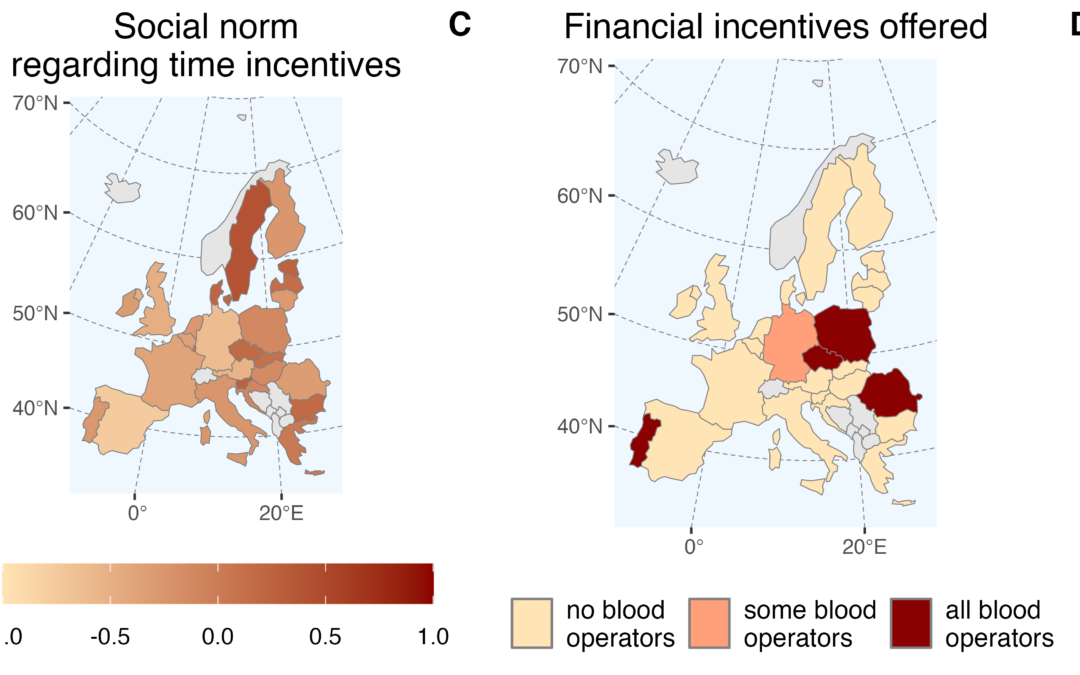News

Do incentives actually encourage prosocial behavior?
Classical economic theory has posited offering incentives - through monetary or nonmonetary extrinsic rewards - is a promising strategy to encourage prosocial behavior. However, results from empirical research on the effect of incentives on prosocial behavior are...
Does talking about blood donations increase compliance with solicitations?
For organizations that aim to connect donors with recipients, solicitations are an important tool used in an attempt to encourage prosocial behavior. Compliance with these solicitations, however, tends to vary between individuals and social contexts. Can the...
Continuing Giving in the Netherlands (2024) – About Giving in 2022: A Year of Crisis
Since the beginning of this year, the Center for Philanthropic Studies continued their research on giving in the Netherlands. Giving in the Netherlands 2024 will be the 14th edition, about giving in the year 2022: a year of crisis. In the first months of 2022, we were...
René Bekkers receives Open Science Amsterdam Award
René Bekkers received an Open Science Amsterdam Award for the project Transparency in Nonprofit and Philanthropy Research. The Open Science Amsterdam community encourages awareness of open science principles and adherence to them at UMC Amsterdam, VU, UvA,...
Center for Philanthropic Studies researchers receive Emotional Well-being and Health Data Analysis Award
Unemployment, especially when involuntary, often has a negative effect on one’s emotional well-being. But is that the same for volunteers and non-volunteers? It could be that volunteers are less sensitive to the stress of job loss by having a social support network...
Support from companies for charities during corona crisis is greater than ever
In the corona year 2020, the Netherlands gave 5.6 billion euros to charitable organizations. This is evident from the research Giving in the Netherlands by the Vrije Universiteit Amsterdam. Companies in particular have started giving more to charitable causes: they...
Inequality and Civic Engagement
How does inequality affect individuals’ civic engagement? Though a growing body of multidisciplinary literature has started to address this question, empirical results vary considerably and explanations about what underlies this relationship remain fragmentary. In...
Social Norms Offer Explanation for Inconsistent Effects of Incentives on Prosocial Behavior
Incentives are considered effective tools for encouraging behavior, but their inconsistent effect on prosocial behavior has been puzzling! In a new preprint, Caroline Graf, Eva-Maria Merz, Bianca Suanet and Pamala Wiepking argue that social norms may offer an...
They ought to do it too: Understanding effects of social information on donation behavior and mood
Claire van Teunenbroek published a paper (with René Bekkers and Bianca Beersma) on social information effects (i.e. mentioning the donation amount of others) on donation behavior. They found that social information in the form of an injunctive norm increases both the...
Symposium and inaugural lecture Prof. Dr. Pamala Wiepking
On March 19, 2021 the Center for Philanthropic Studies and the Dutch Charity Lotteries organized a joint symposium "Unrestricted and multi-year financing of societal organizations" leading up to the inaugural lecture of Prof. dr. Pamala Wiepking. With this inaugural...
